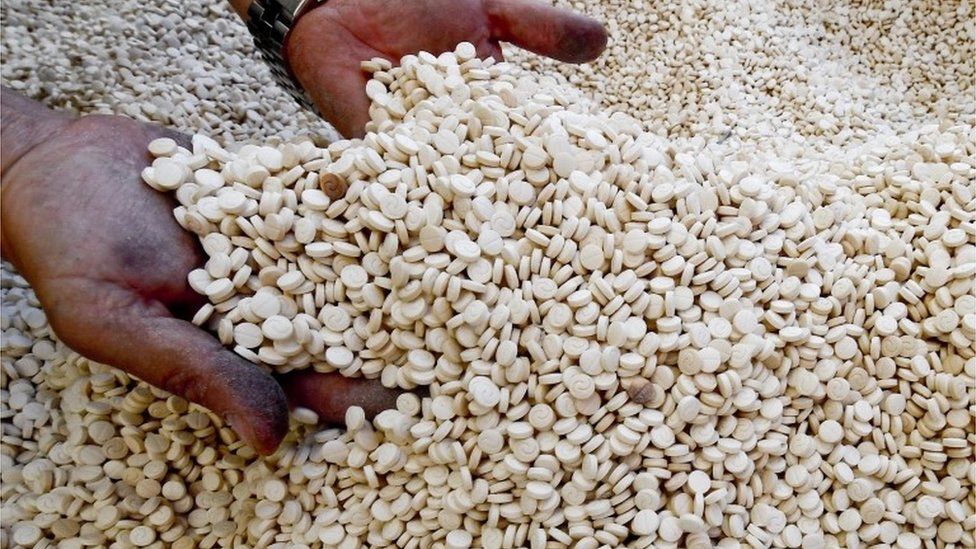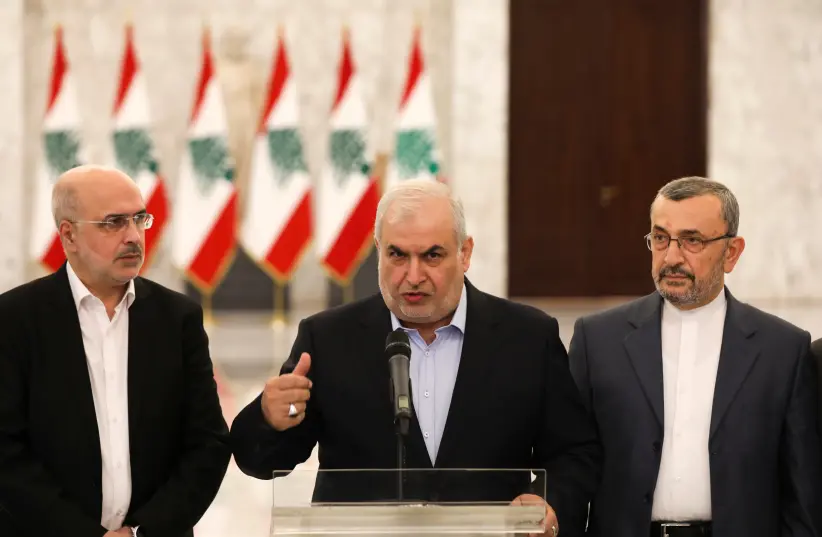
Jordan’s undeclared war against Syria drug traffickers
A man in his 20s with cropped hair agitatedly paces the corridor of the drug rehabilitation unit as he grapples with the agonies of early withdrawal.
In the TV room, a fashionably dressed young woman in a later stage of recovery wearily draws on a cigarette then rests her head in her hands.
Fighting from the decade-long war in Syria may have died down, but the country’s transformation into a narco-state is sowing new seeds of misery across this region.
The rooms at Al-Rashid Hospital in Jordan’s capital, Amman, look like hotel accommodation, but checking in here is an act of desperation.
“It’s a long process. The patients stay for a minimum of one month, sometimes three months,” says nurse Hadeel Bitar as she shows me around.
They come from Jordan and Gulf Arab states, where in recent years the amphetamine Captagon – cheaply manufactured in Syria and Lebanon and also known as “the poor man’s cocaine” – has become the drug of choice.
“The consequences of taking it are very serious. They can include violence and psychosis,” says Dr Ali al-Qam, a consultant psychiatrist and clinical director.
“It’s very addictive as well. People start with one tablet and then increase by two or three, then shift into a more serious drug like crystal meth.”
At the height of the conflict in Syria, smugglers and militant groups took advantage to supply Captagon – which is often laced with caffeine – to fighters, to boost their courage and help them stay alert on the frontlines.
With few legitimate work opportunities and growing poverty, many ordinary Syrians became involved in the drugs trade.
Now, with the Syrian economy shattered by a decade of war and still stifled by international sanctions, it has turned into a multi-billion-dollar industry, worth far more than any legal exports.
Although there have been public denials from Syrian President Bashar al-Assad’s government, reports have linked powerful figures in business and the military to the manufacturing and distribution of Captagon.
“The areas in which Captagon production is most pronounced are those controlled by the Assad regime and close familial relations of the regime,” says Ian Larson, a Syria analyst for the Center for Operational Analysis and Research (COAR), a Cyprus-based consultancy.
“Now, that remains a circumstantial linkage, but it is an indicative one.”
A 2021 report, which he authored, suggested a “mind-numbing” scale of Captagon production, with a market value estimated at about $3.5bn (£2.7bn; €3.2bn) for the previous year, based on quantities that were intercepted.
The pills regularly show up in ports, airports and at crossing points – often expertly hidden. They have been found inside containers of machinery and fruits – even fake ones. The Jordanian authorities have released footage of them being removed from animal carcasses.
Source: https://www.bbc.com/news/world-middle-east

